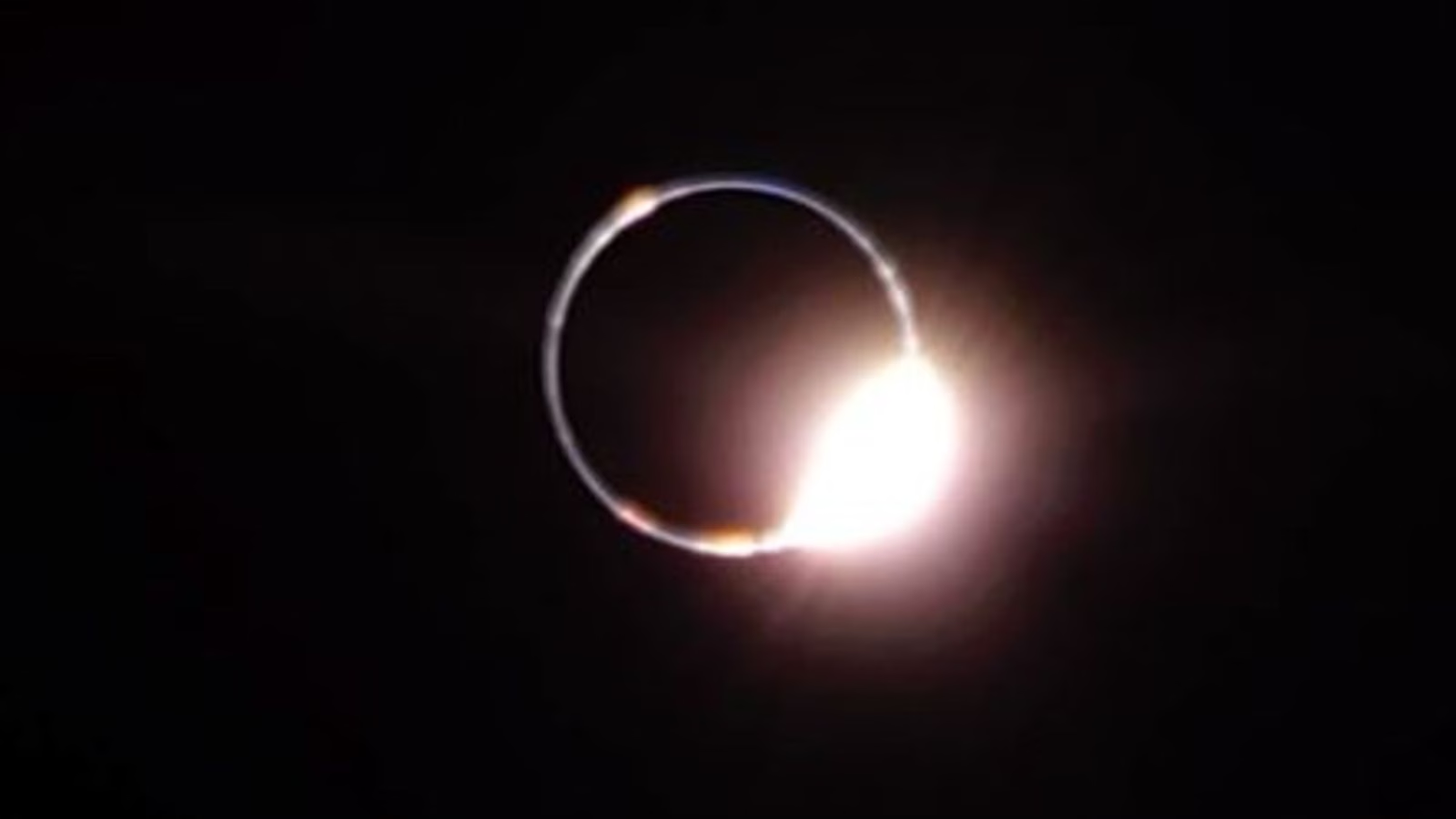This week’s eclipse has been photographed from the perspective of the moon. However, instead of being the lunar eclipse visible from Earth, the event was actually a solar eclipse when viewed from the moon.
These images were captured by a camera on the unmanned Blue Ghost spacecraft, which successfully landed on the moon earlier this month.
Operator Firefly Aerospace claimed a historic milestone by being the first commercial entity to operate on the moon during an eclipse.
During a complete lunar eclipse, the Earth positions itself directly between the moon and the sun, casting a shadow that partially or fully hides the moon from sunlight.
In the blood moon event on Friday, the moon turned a reddish hue and was visible across North and South America, while the UK experienced only a partial lunar eclipse.
The first Moon-based image of the cosmic event captures the Earth beginning to obscure the sun. The reflection of the lander’s solar panel, visible in the same image, also catches a glimpse of the solar eclipse.
Firefly Aerospace commented on the image posted on X: “BlueGhost” first witnessed the solar eclipse from the Moon at approximately 12:30 am CDT. Notice the bright ring of light forming in the reflection of our solar panel as our planet begins to block out the sun.
A second photo, taken from the landing point, depicts the “diamond ring” as the sun is about to reappear from the totality behind the Earth.
A third photograph captured by Blue Ghost showed the lander turning a shade of red during the event.
Firefly Aerospace explained, “The reddish hue is a result of sunlight refracting through the Earth’s atmosphere as the sun is blocked by our planet, casting a shadow over the lunar surface. The glowing ring of the eclipse can be seen again reflected on Blue Ghost’s solar panel.”
Blue Ghost’s solar panels have been powering the lander’s set of scientific instruments throughout its 14-day mission on the moon.
Read more from Sky News:
Rocket with replacement crew for stranded astronauts launches
What can being in space for so long do to your health?
The four-legged Blue Ghost, about the size of a compact car, landed on February 2 near an ancient volcanic mouth in Mare Crisium, a notable basin in the moon’s northeastern visible face.
It carries 10 scientific payloads and employed 21 thrusters for precise landing maneuvers.
On board are instruments such as a vacuum to analyze moon soil and a drill capable of temperature measurements up to 10 feet deep.
Firefly Aerospace has boasted of being the second private enterprise to achieve a moon landing, claiming it also completed a “fully successful” soft landing.
Houston-based Intuitive Machine’s Odysseus lander tilted upon landing a year ago, leaving many of its instruments non-functional.
To date, only five countries have accomplished soft landings: the erstwhile Soviet Union, the US, China, India, and Japan.










